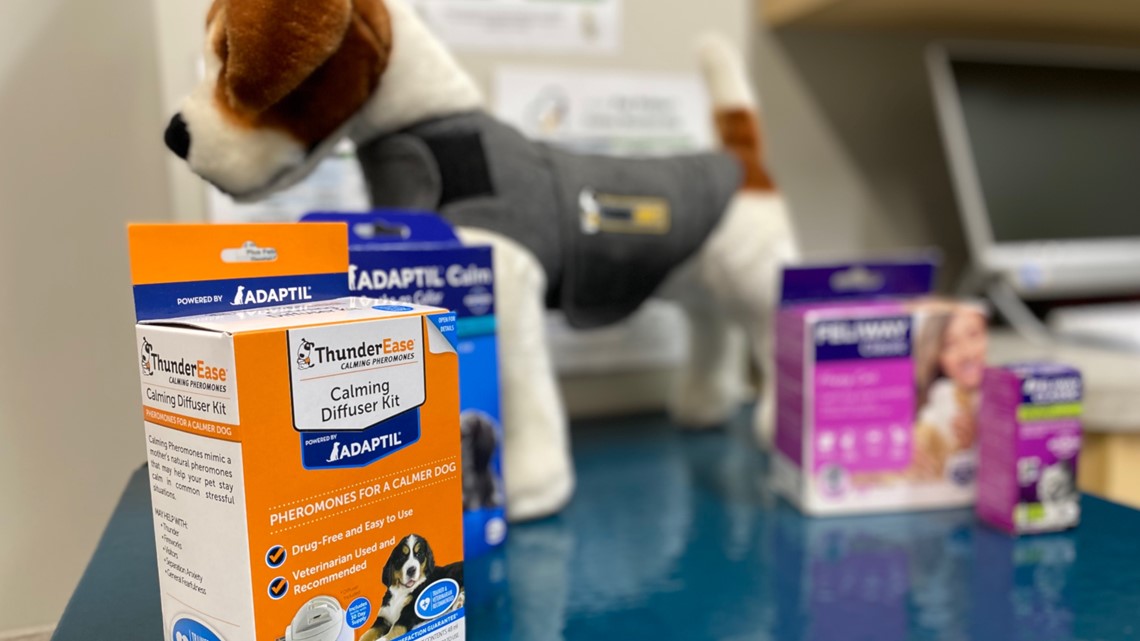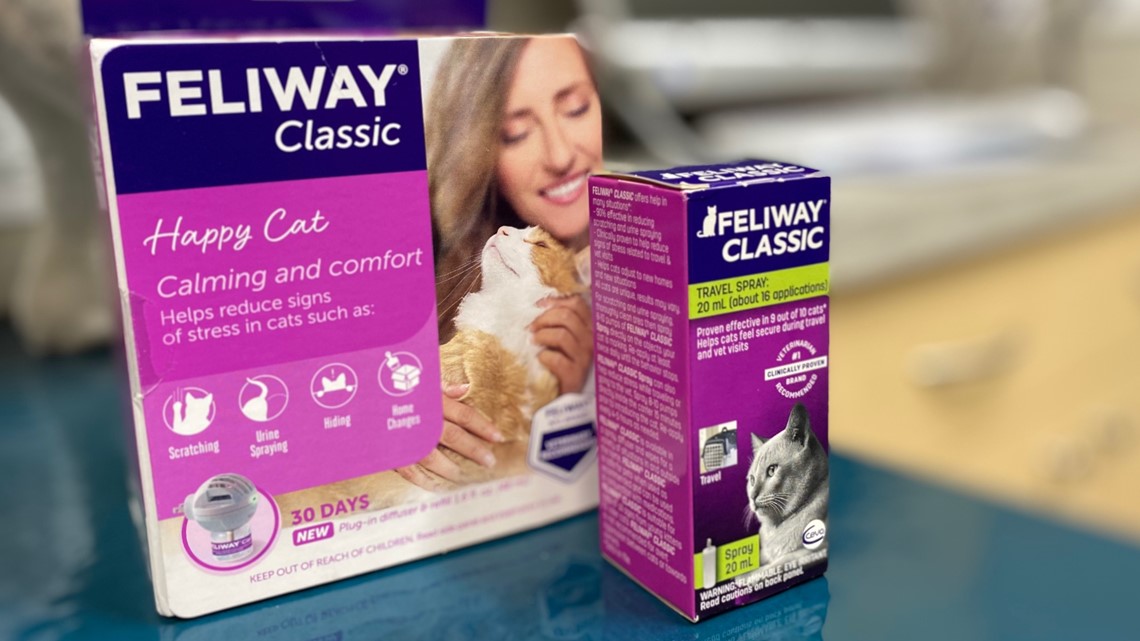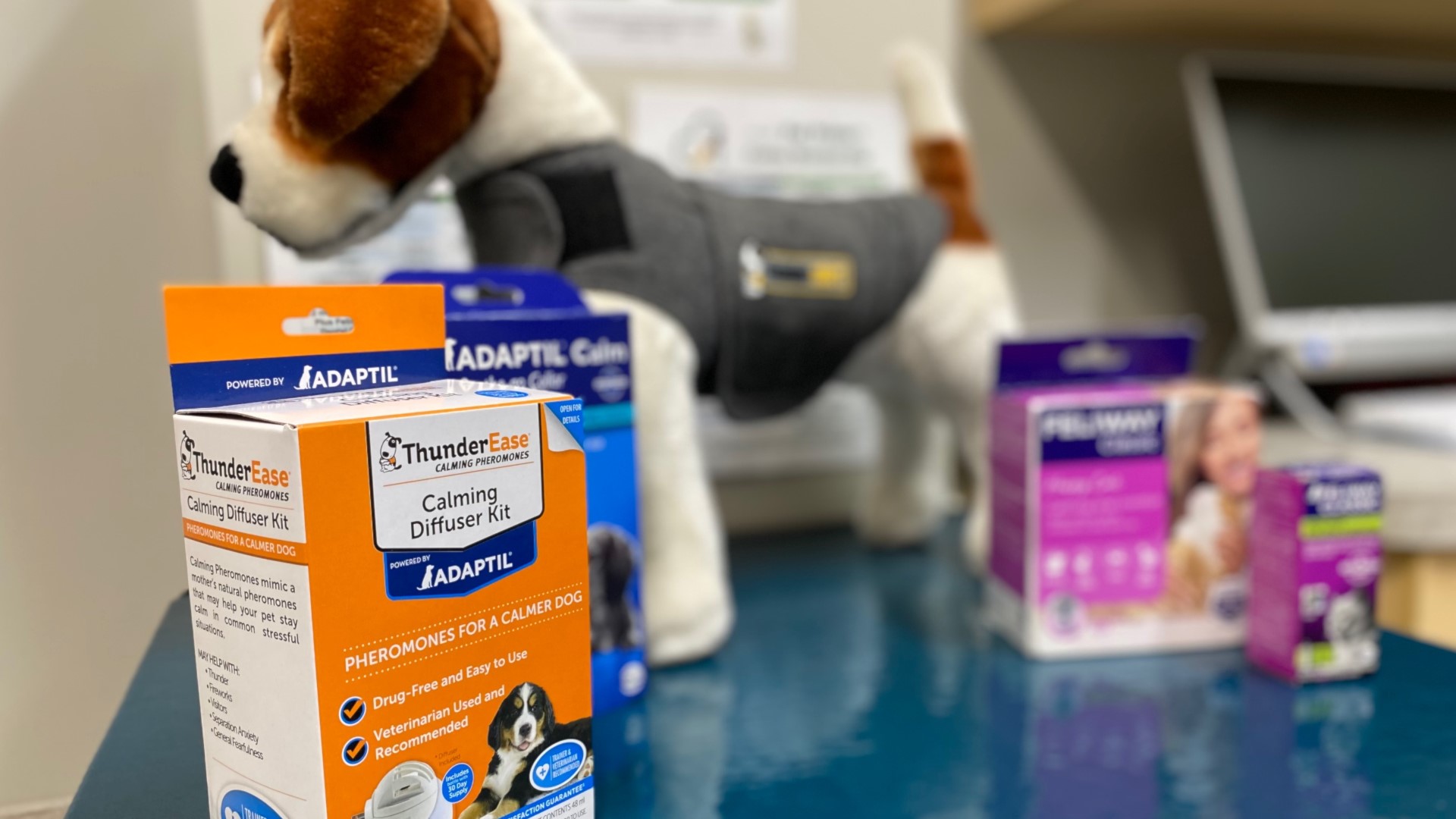PENDLETON, Ind. — Before you book your next getaway, local veterinarians are reminding you to include your pet in your plans.
Experts say anxiety in dogs has increased anywhere from 40% to 700% over the last two years, according to a new study from Green Element.
Dr. Rachael Campbell, medical director with Pet Wellness Clinics, said a lot of that is due to the COVID-19 pandemic.
"Just like people, any major transition in your life is going to be hard for everybody," Campbell said. "Not to mention, I really feel like animals can feel your anxiety, your stress, and they can tell when something is wrong. They don't know why."
Campbell said there are a few main types of anxiety in our pets: general anxiety, noise anxiety, separation anxiety and stranger anxiety.
Experts say dogs aren't the only pets to experience these types of anxiety. Campbell said our feline friends are just as vulnerable.
"Cats are a little different," Campbell said. "They love routine. They are much quieter about some of those symptoms until they are very advanced. Separation anxiety for cats is hard. They may just sit at the window and wait for you, and if you watch them, they're breathing fast. If you were to take their vitals, they are actually stressed, but it looks like they are comfortable."
When it comes to visible signs and symptoms, Campbell said owners know their animal best. Anything out of the ordinary should not be ignored.
Common symptoms of anxiety in pets include:
- Destructive chewing
- Panting and drooling
- Pacing
- Constant whining, crying or barking
- Urinating or soiling in the house/outside the litter box
- Gastrointestinal trouble, like vomiting or lack of appetite
Just like people, according to Campbell, anxiety can become worse if there is no mental or physical outlet. She said it can also appear in pets of all ages.
Preventing stranger anxiety
To help prevent stranger anxiety in pets, experts suggest socializing your pets early with other animals and people.
Planned meetings between your pet and your pet sitter allow for plenty of interaction time. Plus, experts suggest sharing "insider information" with your pet sitter, like certain toys or behaviors that are comforting to your pet.


Preventing separation anxiety
To help prevent separation anxiety, Campbell suggests meeting your pet's physical, social and exploratory needs every day. That can include walks, scheduled play and positive reinforcement.
Experts say another trick is to not make a big deal out of arrivals and departures. Talk to your dog in a calm voice when you are leaving and returning.
Coping with pet anxiety
Campbell said there are many tricks to help your pet cope with its existing anxiety.
First, she said any anxiety symptoms should be addressed by your vet to rule out that your pet is experiencing another medical condition. Then, the veterinarian may suggest a treatment plan.
There are prescription medications available, according to Campbell. There are also natural calming options available over-the-counter.
For example, traveling can be an overwhelming experience for pets. Campbell said smelling aids, like pheromones, and outerwear, like a Thunder Shirt, can help.



